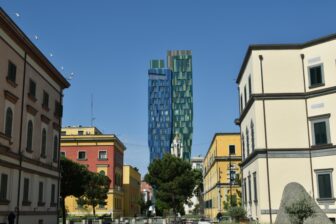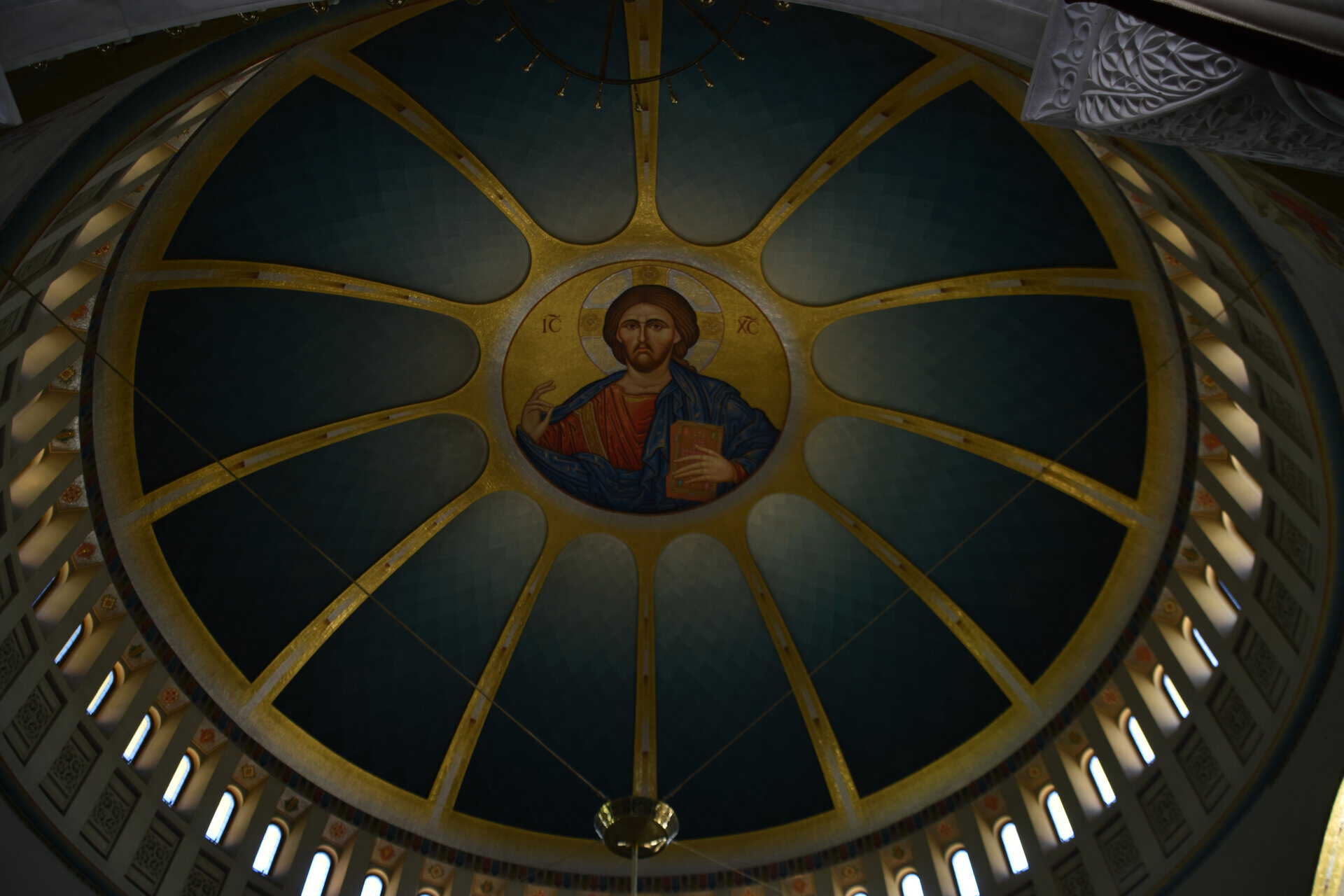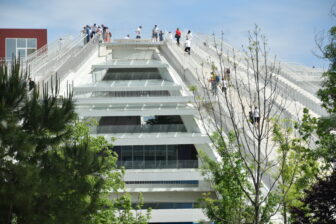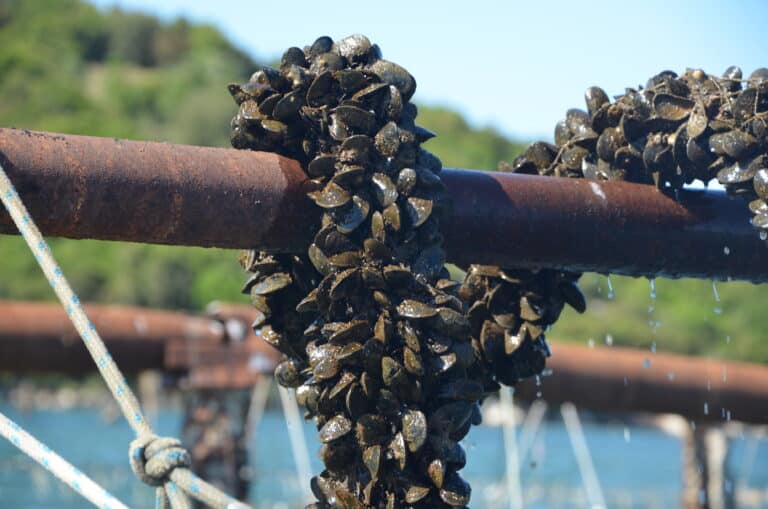
[Apr. 2024] After visiting the ruins of Butrint in Albania and having lunch, we were scheduled to return to the hotel for some free time.
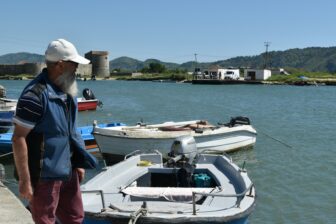
However, perhaps some tour members complained that there was nothing to do in Saranda, where the hotel was located.
Our guide was resourceful and quickly organized an event to take us on a boat tour of Lake Butrint, which surrounds the ruins.
The boats were operated by fishermen who farm mussels in the area.
The 12 tour participants split into two groups of six and got into two motorboats.
The boat we were on was led by a young man, and it was fast and thrilling.
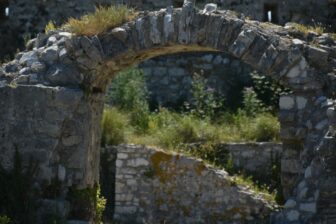
It was a great feeling.
After driving for a while, we landed on an island where the remains of Ali Pasha’s fort are located.
Ali Pasha was a powerful governor of Albania during the Ottoman Turkish period.
Before he built the fort, when part of Albania was under the control of the Republic of Venice, this was apparently the site of a Venetian mansion.
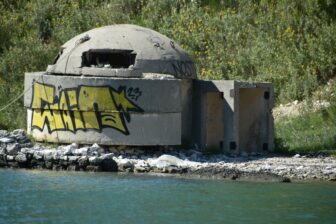
In the more recent communist era, this was a lookout point to monitor people fleeing to the Greek island of Corfu.
This island is located in the long, narrow waterway called the Vivari Canal, which connects Lake Butrint to the Adriatic Sea, and it seems to have been an ideal place for surveillance.
After spending some time here, we got back on the boat, this time heading into the lake.
On the way, we saw several bomb shelters on the shore, of which apparently 750,000 were built during the communist era.
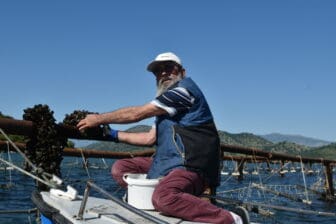
Albania had been in a state of isolation for a long time, but it seems that its rulers were always feeling a sense of crisis that their country would be attacked by enemies.
After passing this, we drove a little further and arrived at the mussel farm.
The old man driving the other boat lifted up a bunch of mussels and showed them to us.
He then ate some raw mussels and invited us to try some, but everyone refrained, worried about their stomachs.
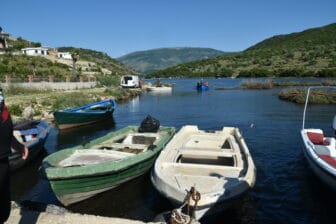
The guide ate one, though.
Apparently, mussels also have male and female, and if you tie the new-born mussels to a string and leave them for a year, they will grow big.
The old man seemed excited that we had come to see them, and when he picked up a mussel with his bare hands to show us, he cut his hand.
He said that he usually wears gloves when touching them.
I hope it was just a minor cut.
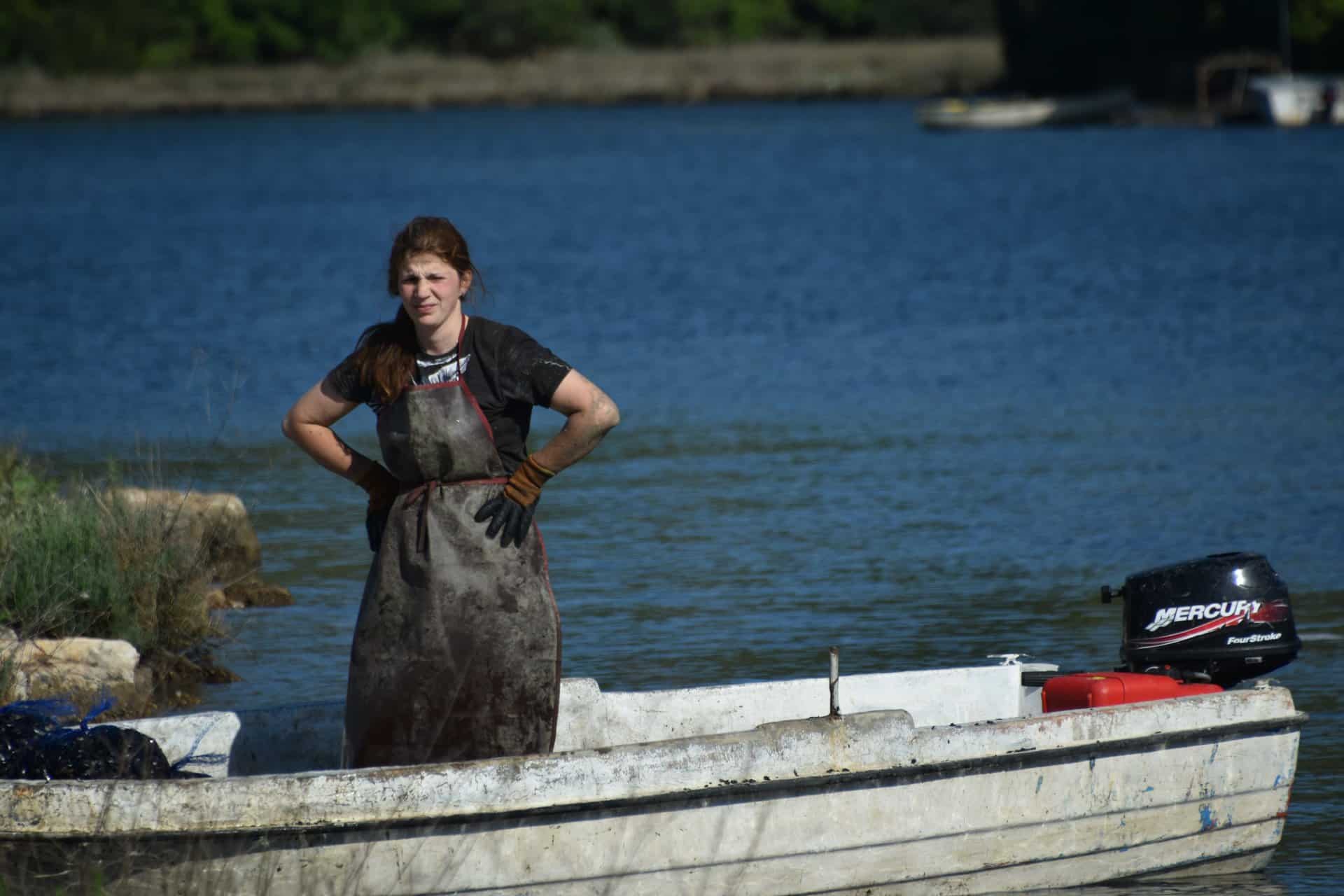
Then, under the clear blue sky, we sped again, covered in spray, to the shore of the lake.
On the shore, we could see people involved in mussel farming unloading the shells, which was a bit like a painting.
This was a completely unplanned event, but it remains in my memory as one of the highlights of the trip.
At first, I felt that the guide was a bit difficult person, but seeing how he was resourceful made me realise that he was an experienced man.

